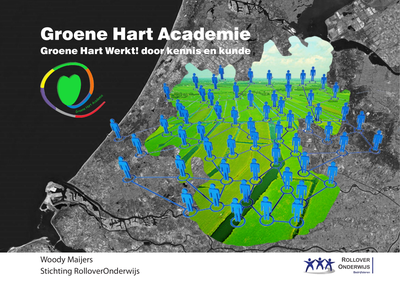Presentatie van rapport over: 'Groene Hart Werkt! door kennis en kunde'. Inventariseer de behoefte en wijze waarop de Groene Hart Academie verduurzaamd kan worden en werk een businessplan en actieplan uit zodat de leden van de bestuurlijke tafel Groene Hart Werkt! zich een beeld kunnen vormen over de kansen van een doorstart en de toekomstige positie van de Groene Hart Academie zodat zij haar rol kan blijven vervullen en nieuwe projecten kan blijven aanjagen en uitvoeren.
DOCUMENT

This article proposes that identity formation and reformation are important dynamics that influence and are influenced by the course of a sustainability transition. We study identity (re-)formation in the transition of the dairy sector in a rural area in the Netherlands: the Green Heart. Soil subsidence, high emissions, and economic pressures require substantial changes in practices in the dairy sector and most importantly, the landscape that it is intertwined with. We use narrative analysis to study identity (re-)formation in two new stakeholder collectives that aim to address sustainability in the area. We identify discrepancies between the narratives in these collectives and the transition challenge. These discrepancies can be explained by the role that the landscape of the Green Heart plays in the identity (re-)formation within these collectives. The attachment to the current landscape forms a lock-in for the sustainability transition in this area.
MULTIFILE

Human and plant relationships are described within the rich tradition of multispecies ethnography, ethnobotany, and political ecology. In theorizing this relationship, the issues of functionalism, and interconnectivity are raised. This article aims to re-examine the position of plants in the context of contemporary urban spaces through the prism of environmental ethics. Despite conceptual plurality and socio-cultural complexity of human–plant relationships, social scientists fail to note how the perception of ‘greenery’ has objectified plants in urban environment. Without seriously considering bioethics, theories of human–plant relationship might fail to note exploitive anthropocentric relationship between humans and plants in urban spaces. The article is inspired by reflections of urban flora in Amsterdam, The Netherlands. https://doi.org/10.1016/j.scs.2013.01.007 https://www.linkedin.com/in/helenkopnina/
MULTIFILE
